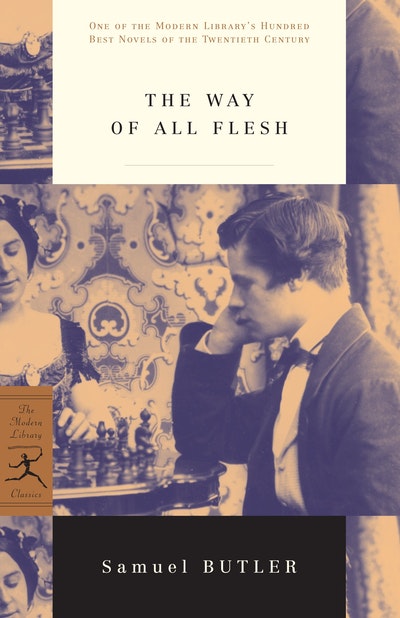Selected by the Modern Library as one of the 100 best novels of all time
The Way of All Flesh is one of the time-bombs of literature," said V. S. Pritchett. "One thinks of it lying in Samuel Butler's desk for thirty years, waiting to blow up the Victorian family and with it the whole great pillared and balustraded edifice of the Victorian novel."
Written between 1873 and 1884 but not published until 1903, a year after Butler's death, his marvelously uninhibited satire savages Victorian bourgeois values as personified by multiple generations of the Pontifex family. A thinly veiled account of his own upbringing in the bosom of a God-fearing Christian family, Butler's scathingly funny depiction of the self-righteous hypocrisy underlying nineteenth-century domestic life was hailed by George Bernard Shaw as "one of the summits of human achievement."
"If the house caught on fire, the Victorian novel I would rescue from the flames would be The Way of All Flesh," wrote William Maxwell in The New Yorker. "It is read, I believe, mostly by the young, bent on making out a case against their elders, but Butler was fifty when he stopped working on it, and no reader much under that age is likely to appreciate the full beauty of its horrors. . . . Every contemporary novelist with a developed sense of irony is probably in some measure, directly or indirectly, indebted to Butler, who had the misfortune to be a twentieth-century man born in the year 1835."







